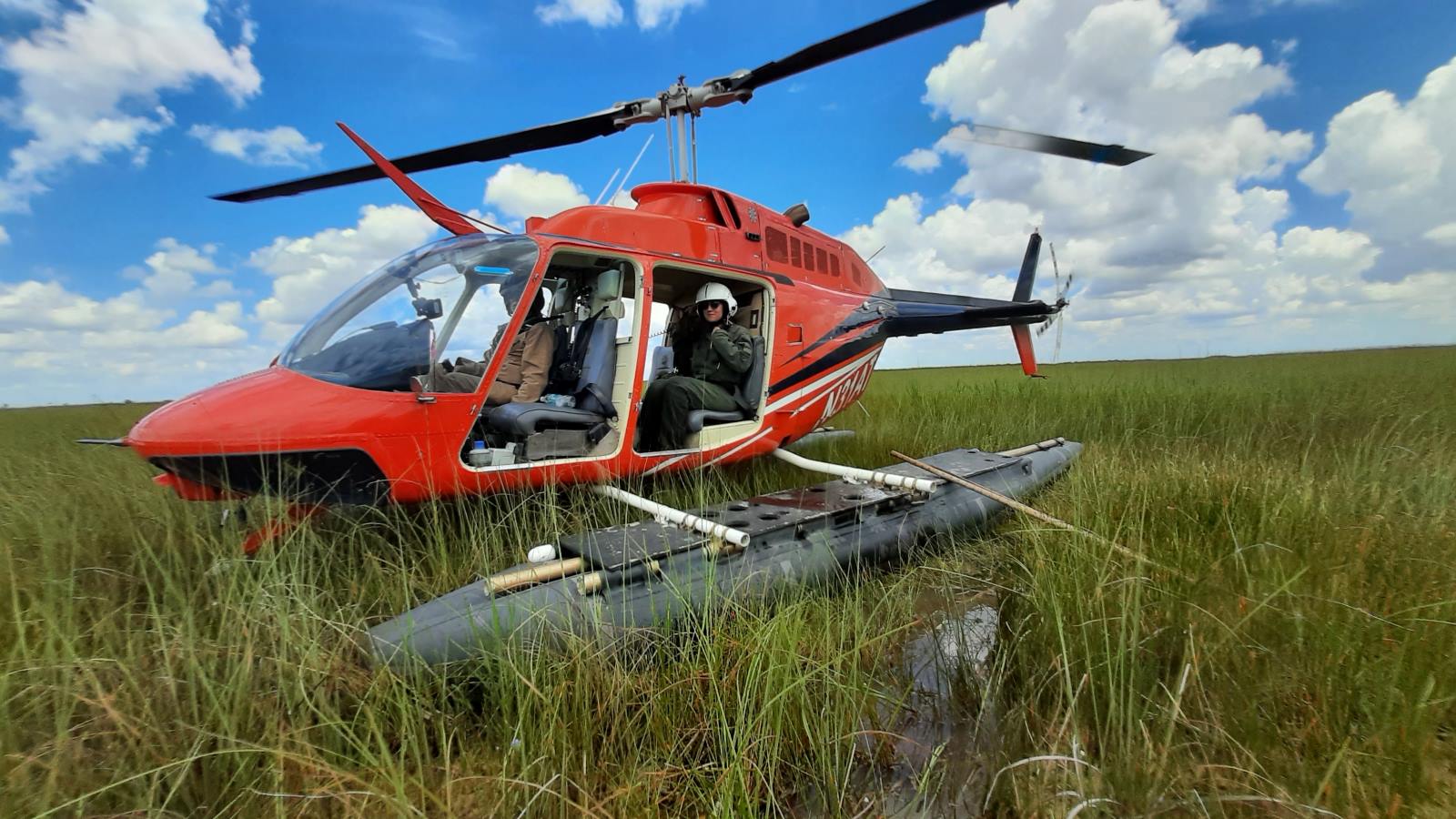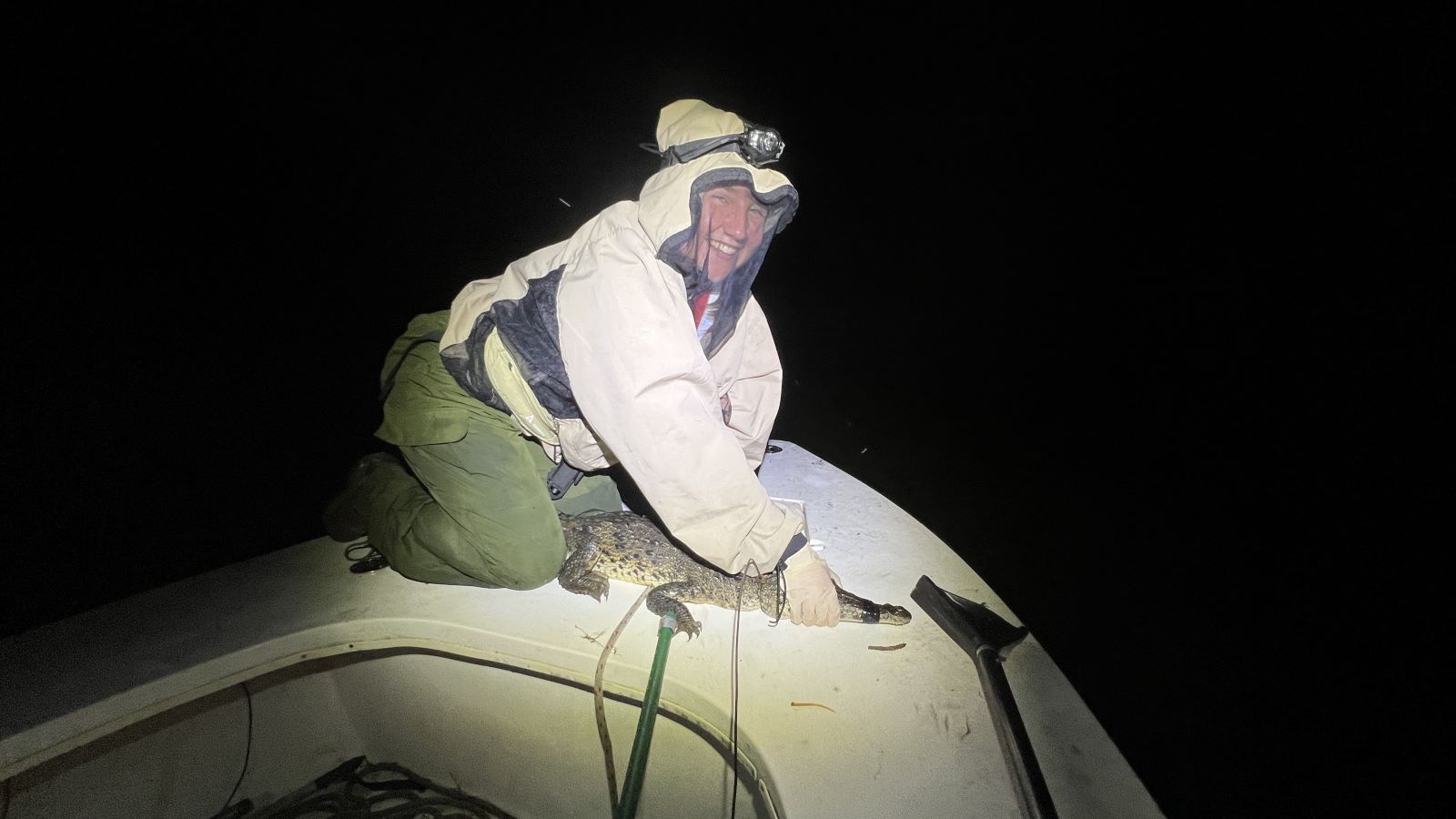Like so many in South Wales, Amy Stout has fond memories of the Techniquest exhibition floor as a child.
From sounding out ‘Happy Birthday’ on the Giant Piano to taking part in overnight stays with the Girl Guides, the Science Discovery Centre played a real part in her early STEM journey.
And now, as a qualified zoologist, she has joined the team as an Operations Assistant where — alongside her work in zoology and wildlife filmmaking — she hopes to inspire the next generation of STEM professionals.
We spoke to her about her first memories of Techniquest, what it’s like being back after so long, and some of the amazing places her degree has taken her:
Can you share some of your first memories here?
“My first memories of coming to Techniquest are with my family. We used to come here quite often when I was younger — my little brother and I would play for hours on end.
“I also came here with the Girl Guides group I was with. We used to do loads of days out here, in particular I fondly remember that we used to do overnight stays on the exhibition floor, and it was a really nice social experience for me as a kid. I have a lot of memories where I’d meet a lot of other kids and we’d be doing loads of little science experiments — I remember it very positively.
“As I got older and more interested in the sciences, I’d come back to see the science shows especially, and the Planetarium was a firm favourite of mine. I spent a lot of time in there looking at the stars and asking lots of questions, and having as much fun as humanly possible.”

What’s it like being back so many years later?
“It’s very nostalgic. I’ve found it incredibly easy to settle into the job because it feels like home already. I’ve never felt out of place here; I walked in and it just felt really nostalgic, really welcoming, and the team have still got the same energy that they had when I was younger.
“When I’m out on the floor, there’ll be new exhibits that I haven’t seen before that I’ll be excited to use, but then seeing the classic ones in the Retro Area serves as a lovely memory and I take a lot of joy in showing new visitors the science behind the classics. I get to share my love for science and technology with new children that are coming in, and reminisce with some of the older visitors that will remember what it was like in Techniquest when they were children.
“It’s nice to be able to provide some of the support and enthusiasm that I experienced as a kid coming here and give back to a charity that was a large part of my own journey through STEM.”
Why do you thinking learning about STEM at an early age is important?
“Being exposed to the world around you gives you so many skills as a child — you can understand how things work, and how we impact those things around us. We aren’t in isolation: every person’s actions have consequences and, as a child, being taught that if you’re going to engage with the environment in a certain way that it will react in a certain way, is really important.
“Also, I think it’s important to provide that base layer of excitement around science as well, because once you’re excited about something and you want to dive into it and learn more, there’s no better basis than to go off and learn about it in education and in schooling. Getting excited about STEM subjects puts you in a great position to learn more about them, and doing it interactively is one way to hone that excitement.”
During her time at Bangor University, Amy served as a Student Ambassador and developed her science communication skills in that role. She shared more about the effect that storytelling had on her STEM journey, and how that skill has translated to her time on the exhibition floor.
What drew you to zoology?
“It sounded like an amazing degree. I’ve always loved animals; as a kid, I was very into the sciences, and I’ve got a lot of people in my life that have scientific backgrounds (such as my grandfather and grandmother who were scientists working on the SARS epidemic in Hong Kong) who inspired me to make a difference in my corner of the scientific world and pursue a degree in an area I was passionate about.
“I saw how others I cared for in my life had used their degrees to bring about a positive change in the world and knew that with hard work and dedication, I would be lucky enough to do the same.
“Zoology combined all aspects of STEM that I loved, from biology to geography, it also brought in my love for psychology and gave me an excuse to spend lots of time in labs and exploring outdoors.
“What really got me interested in the sciences was myths and legends; I used to love going to the Planetarium and hearing all about the stars and constellations, and that got me interested in the storytelling side of science.
“When I was a kid, I loved engaging with stories — ones like Balto, or White Fang, or different animal documentaries. If you just showed me videos of some animals out in the wild, without that story attached and the context, I wouldn’t have been as engaged. That’s one reason my career is steering towards wildlife filmmaking and storytelling, too.
“At Techniquest, you’ve got a narrative to follow in the Planetarium and in the Science Shows. Having exhibits without any explanation, or any people out on the floor to help on the storytelling side, I believe the exhibits wouldn’t engage people in the same way.”

Who are your STEM inspirations outside of Techniquest?
“The classic inspiration and someone that certainly inspired me is David Attenborough — I’d always be watching shows narrated by him. My family would also take me outside into nature, and often I’d go to Cosmeston to look at birds, and I was lucky enough to be taken to a number of different facilities as a child, such as zoos and science centres.
“I also took part in a lot of nature related activities with Girl Guides groups, such as camping trips and outdoor sports. I think the more time that you spend outside and in nature, you can’t help but start to notice the things around you.
“My grandparents were absolutely incredible too, and such an inspiration for me. In particular, I fondly remember that my grandfather was huge lover of the natural world; he was an engineer and avid gardener, and would often look after me when I was a child, taking me down to the local allotment to grow food and look at the wildlife. He would also bring me to Techniquest and take me all over the place to science and technology events around the country. It’s hard to pick out one thing that inspired my love for science and nature as a child, but the people around me and my family were paramount to me seeing the world in a certain way.”
Can you share some more about what you did at Bangor University?
“During my time at Bangor University, I volunteered regularly with wildlife groups, whilst I worked towards both my BSc and then subsequently my master’s degree. My first three years at Bangor focused largely on animal behaviour, conservation and ornithology, although my later research during my master’s degree focused heavily on wetlands and microplastics. This is a particularly important area of research in the current climate, and I felt lucky every day to be part of a team at Bangor making incredible strides in the research, and to aid in the communication of the importance of wetland in the story of climate change.
“I thoroughly enjoyed my time in North Wales; whilst completing my degree as well as making friends for life, I thoroughly enjoyed the scenery of Eryri and all the opportunities it had to offer. I feel completely at home up in the Welsh mountains and often visit them to see my friends and take part in projects and research since graduating. It is one of my favourite places.”

Tell us about your time in Florida.
“Separate to my degree during my time at Bangor, I was fortunate enough to be involved in some research out in Florida where I worked on welfare capture research of crocodiles and alligators — people don’t realise that both species are found in the state! The gators (Alligator mississippiensis) are more common and well known, although the crocodiles (Crocodylus acutus) are a lesser known, elusive species.
“We were there for about a month, living in a little campervan and working with organisations such as the Florida Wildlife Commission and Miami Zoo, whilst working alongside amazing zoologists and conservationists. We took part in helicopter nest surveys and often found ourselves on air boats travelling around the Everglades to complete our research. Getting to have such incredible insights and experiences into the research and life in that part of the world was fantastic.

“My time at Bangor and the work in Florida solidified my love of STEM and the world around me that Techniquest fostered early on, and I believe that this is a backbone to my enthusiasm now while working here and pursuing my career as a science communicator and wildlife filmmaker. I’m very excited to see what the future holds and look forward to engaging with my home city about the world of STEM within my new role at Techniquest!”
If you have any questions for Amy — like how to tell an alligator and a crocodile apart! — you can find her on the Techniquest exhibition floor.

